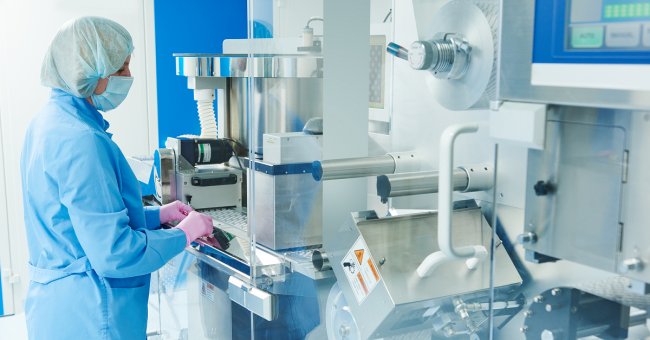Pharmaceutical industry in particular is very highly regulated, but now even the subsidiary and related industries are increasingly subject to tighter regulations.
An RMS, or Recipe Management System, allows manufacturers to have the required level of control, while being efficient in terms if process management, time to market and throughput. An RMS may be deployed separately or as a part of a larger application like the MES, and it is a prerequisite for complex and demanding industrial applications.
MODERN MANUFACTURING = COMPLEX RECIPES
Recipe management continues to be a complex and at times very poorly managed aspect of most modern manufacturing operations, process or discreet, the main reason being the inability of manufacturers to fully leverage their existing IT infrastructure.
Pharmaceutical industry and now even other industries like medical device manufacturing, nutritional food manufacturing, cosmetic and similar, face extremely stringent regulations, which mandate records, either manual or electronic to be maintained for each item produced for a said number of years, depending on product shelf-life, ingredients, severity and many other factors.
Another challenge the manufacturers face is when the electronic batch records need real-time approvals and electronic signatures need to be stored in a relatable, traceable and authentic manner. The daunting nature of maintaining verifiable and retrievable information stored in requisite formats, becomes a highly challenging and costly affair for any existing IT application in place, which might be some version of ERP more suited for basic BOM management.
AUTOMATION SOFTWARE FOR RECIPES
The truth is, BOM management does not even come close to recipe management in complex manufacturing scenarios, as it deals only with material and completely overlooks the equipment, scheduling and production specifications part of a detailed recipe management system.
MES applications, with built in RMS or Recipe Management Systems, have successfully managed to meet all of the challenges mentioned above, right from the R&D stage, when specifications are created for a pill, a prosthetic, an energy bar or a blood sugar testing aid, the general recipe is recorded and time stamped with proof of identity of the personnel who edits the same.
Once a product is approved and production is to begin, the MES would allow production teams to tweak the recipe and document the master recipe, while interfacing with both the equipment layer and the materials management layer, thereby allowing end-to-end visibility of the master recipe throughout the process.
The MES would also provide the requisite control and alert the production personnel when any aspect of the master recipe is beyond what is specified through the general recipe. In actual production scenario the MES would also help implement and record individual control, batch, or lot recipes and assure regulatory requirements are met.
The MES application actually goes beyond meeting basic regulatory requirements placed by the FDA and similar entities. It would not only be able to record and time stamp details of each production lot, it would provide the entire lot genealogy.
It would also authenticate whether or not an operator is qualified to perform a said operation. On top of providing lot-to-lot and tool-to-tool control, the MES also provides clearly recorded and authenticated electronic signatures, which are attained either in real-time or in a deferred manner, based on process guidelines and regulatory requirements.
The best part however is the fact that the MES application not only records data, it relates it and stores it in required formats, to be later reviewed during an audit or for future reference in case of an issue such as a customer complaint or claim of non-conformance.
FLEXIBLE AND MODULAR RECIPE MANAGEMENT IMPROVES THE EFFICIENCY
Existing IT applications, which might be an ERP or some archaic version of MES, might prove just too costly to provide the level of correctness and speed required in complex manufacturing environments, thereby mandating manufacturers to either go for a tailor made application or worse remain manual/paper-based in process documentation part.
Not to worry a third more viable option exists as well. The most modern versions of the MES application are modular in nature, yet they are flexible enough to accommodate the stringent requirements faced by the Bio-Pharma sector.


